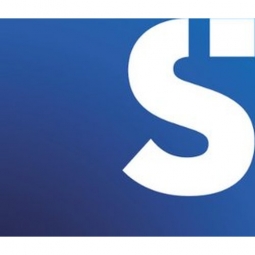Technology Category
- Analytics & Modeling - Machine Learning
- Analytics & Modeling - Real Time Analytics
Applicable Industries
- Automotive
- Transportation
Applicable Functions
- Logistics & Transportation
Use Cases
- Autonomous Transport Systems
- Supply Chain Visibility
Services
- System Integration
About The Customer
Faurecia Seating is a globally recognized leader in the automotive industry, specializing in the design and assembly of automotive seating components. The company produces a wide range of seat products, including seat covers, foams, accessories, seat electronics, and advanced mechatronic systems. These components are used by many of the world’s largest car brands, including BMW, Porsche, and Mercedes. As the number one manufacturer of seat structures and mechanisms for cars globally, Faurecia operates across 74 production sites in 23 countries. The company's customers demand reliable and consistent deliveries of seat parts to sustain their JIT manufacturing processes, making the efficiency and reliability of Faurecia's supply chain operations critical to its success.
The Challenge
Faurecia Seating, the global leader in automotive seating components and complete seat design and assembly, faced significant challenges in managing its highly complex supply chain. The company, which operates across 74 production sites in 23 countries, was grappling with unexpected carrier costs due to waiting times or extra distances travelled by carriers. Additionally, the disruption in the supply of components led to costly production line halts. The company also incurred high penalties for unanticipated late deliveries. These challenges not only affected the company's profitability but also its customer satisfaction levels, as its customers demanded reliable and consistent deliveries of seat parts to sustain their Just-In-Time (JIT) manufacturing processes.
The Solution
To overcome these challenges, Faurecia partnered with Shippeo to operate the first real-time tracking system for land transportation in the automotive industry. The solution, based on a 140,000+ carrier network, leverages innovative machine learning for Estimated Time of Arrival (ETA) calculation, specifically designed for road transport and its unique constraints. The system was successfully deployed to all European plants from Faurecia’s supply chain operations department in Poland. Shippeo directly integrates with all 180 carriers using more than 40 tailored API connections, tracking 17,000 TOs per month. The platform is accessed approximately 1000 times per week by over 40 users across the chain. The real-time communications sent automatically allow Faurecia’s customer teams to take proactive measures swiftly and reduce any transportation risks.
Operational Impact
Quantitative Benefit

Case Study missing?
Start adding your own!
Register with your work email and create a new case study profile for your business.
Related Case Studies.

Case Study
Airport SCADA Systems Improve Service Levels
Modern airports are one of the busiest environments on Earth and rely on process automation equipment to ensure service operators achieve their KPIs. Increasingly airport SCADA systems are being used to control all aspects of the operation and associated facilities. This is because unplanned system downtime can cost dearly, both in terms of reduced revenues and the associated loss of customer satisfaction due to inevitable travel inconvenience and disruption.

Case Study
Integral Plant Maintenance
Mercedes-Benz and his partner GAZ chose Siemens to be its maintenance partner at a new engine plant in Yaroslavl, Russia. The new plant offers a capacity to manufacture diesel engines for the Russian market, for locally produced Sprinter Classic. In addition to engines for the local market, the Yaroslavl plant will also produce spare parts. Mercedes-Benz Russia and his partner needed a service partner in order to ensure the operation of these lines in a maintenance partnership arrangement. The challenges included coordinating the entire maintenance management operation, in particular inspections, corrective and predictive maintenance activities, and the optimizing spare parts management. Siemens developed a customized maintenance solution that includes all electronic and mechanical maintenance activities (Integral Plant Maintenance).

Case Study
IoT-based Fleet Intelligence Innovation
Speed to market is precious for DRVR, a rapidly growing start-up company. With a business model dependent on reliable mobile data, managers were spending their lives trying to negotiate data roaming deals with mobile network operators in different countries. And, even then, service quality was a constant concern.

Case Study
Digitize Railway with Deutsche Bahn
To reduce maintenance costs and delay-causing failures for Deutsche Bahn. They need manual measurements by a position measurement system based on custom-made MEMS sensor clusters, which allow autonomous and continuous monitoring with wireless data transmission and long battery. They were looking for data pre-processing solution in the sensor and machine learning algorithms in the cloud so as to detect critical wear.

Case Study
Cold Chain Transportation and Refrigerated Fleet Management System
1) Create a digital connected transportation solution to retrofit cold chain trailers with real-time tracking and controls. 2) Prevent multi-million dollar losses due to theft or spoilage. 3) Deliver a digital chain-of-custody solution for door to door load monitoring and security. 4) Provide a trusted multi-fleet solution in a single application with granular data and access controls.








